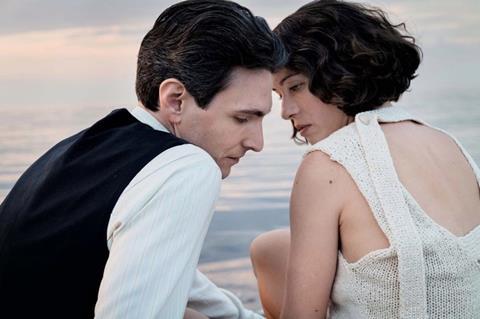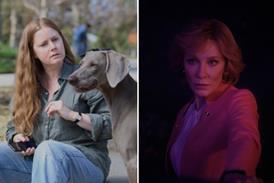
Austria’s new film and TV incentive schemes FISA+ and ÖFI+ have already surpassed expectations since being introduced at the beginning of this year, with more than €40m paid out in grants and over €120m generated as “Austrian spend”.
The FISA+ and ÖFI schemes offer a 30% grant on Austrian spend plus a 5% green filming bonus, with the maximum amount paid per project pegged at €5m for films and €7.5m for series.
ÖFI+ grants
Producer Alexander Dumreicher-Ivanceanu, chairman of trade association Film & Music Austria, told Screen that the Austrian Film Institute is expecting the total ÖFI+ financing for cinema projects of €17m by June to have doubled by the end of the year.
The ÖFI+ scheme supports national Austrian productions and Austrian majority or minority co-productions and had generated around €50m in “Austrian spend” in its first six months.
The scheme has awarded grants to local productions such as Kurdish-Austrian filmmaker Kurdwin Ayub’s second feature Moon, which will see her collaborating again with Ulrich Seidl in his role as producer after her debut Sun, Anita Lackenberger’s 1970s-set drama Elfi, and Rosa Friedrich’s debut feature Mein Freund der Pornostar.
Dumreicher-Ivanceanu’s Vienna-based company Amour Fou, which he co-founded in 1995 with Bady Minck and also operates out of Luxembourg, has also been able to access the ÖFI+ scheme for two co-productions: Eva Romen’s next feature Happyland with Gregory Zalcman’s Brussels-based Take Five, and Norbert Lechner’s children’s film The Secret Floor as a co-production between Lechner’s own company, the Munich-based Kevin Lee Filmgesellschaft, with the two Amour Fou companies.
Other international co-productions supported so far have included Georg Maas’ drama Die Herrlichkeit des Lebens focusing on the love affair between Franz Kafka and Dora Diamant, Sabine Hiebler’s road movie 80 Plus, and Elsa Kremser and Levin Georg Peter’s The Green Parrot which is being produced by The Theory of Everything’s Panama Film.
FISA+ beneficiaries
Meanwhile, the FISA+ scheme, which is targeted at international services productions for TV, streaming and cinema, has distributed grants totalling €25m and generated an “Austrian spend” of around €73m.
It has backed productions such as as HBO Europe’s The Palace starring Kate Winslet, and David Schalko’s six-part miniseries Kafka with Swiss actor Joel Basman in the title role.
In addition, Amazon Prime tapped into the new incentive for its eight-part horror comedy series Mandy Und Die Mächte Des Bösen, produced by Germany’s Caligari Film, and its first Austrian horror series, Followers, produced by Vienna-based Rundfilm and described as a “supernatural mix of horror and coming of age comedy.”
“I am really proud that our negotiations to introduce the incentive in Austria paid off since it also covers such issues as sustainability, ecology and gender equality and, importantly, the schemes are open to local Austrian productions as well as international co-productions and service productions,” Dumreicher-Ivanceanu said.
“We have the right balance at the moment, we have enough crews to meet the demand from productions shooting in Austria and there’s now full employment for those working in our film industry,” he added. “But if this positive trend continues, we will have to ensure that the younger generation is being encouraged to follow a profession in this industry as well as attracting more women and people from other lines of work.”
Investment obligations
Dumreicher-Ivanceanu, who was speaking to Screen at the Locarno Film Festival, said it now “made sense” for Austria to introduce investment obligations for streamers “since they “are now benefiting in a very significant way” from the FISA+ incentive.”
“We see that investment obligations have been introduced in other European countries like France with 25% and now Switzerland will be launching its own scheme with 4% from next year, so it’s definitely something we are seriously considering for the near future.
Dumreicher-Ivanceanu was one of the participants of this year’s Alliance 4 Development platform with Andrina Mračnikar’s second feature Mila/Marija, set in Carinthia, southern Austria, in 1942 when the region was under German occupation.
“We had lots of meetings in Locarno and great interest from world sales companies and possible production partners,” he said, pointing out that the project already has Daniel Hocevar from Vertigo onboard as co-producer from Slovenia “since the story is set on the border between Austria and Slovenia and much of the film will be in the Slovenian language.
“In fact, it will be the first ever Austrian-Slovenian feature film co-production and the first time that the story of Austrian partisan resistance fighters from the Slovenian minority is told for the cinema even though this resistance formed the basis for Austria’s independence in 1955.”



































No comments yet